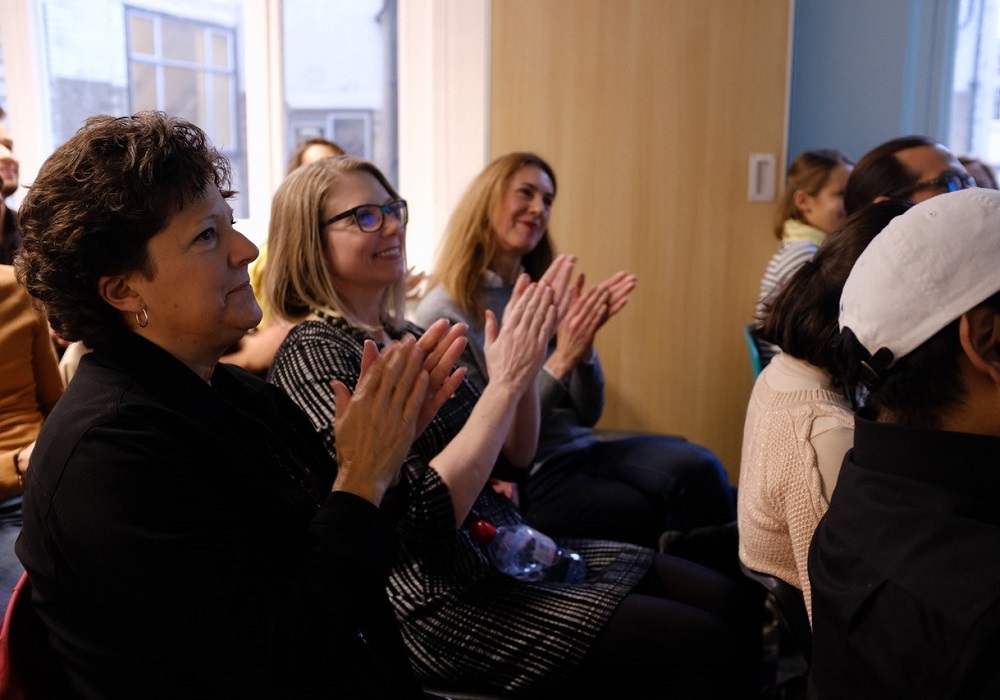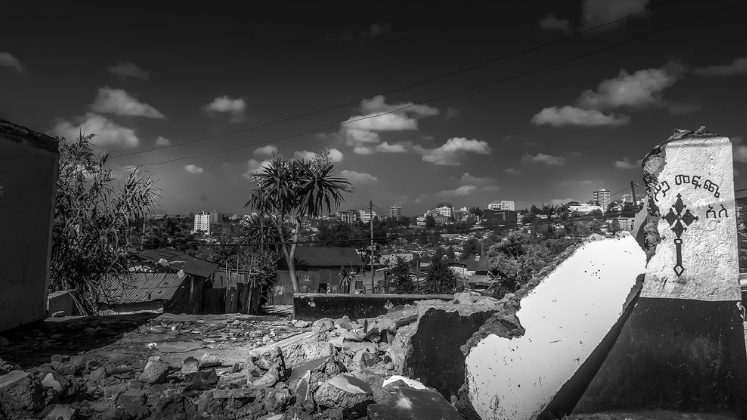The challenge is now to innovatively achieve one security without compromising the other.
This post was written by Mojirayo Ogunkanmi (studying MSc Social and Public Communication at LSE) for our series for International Women’s Day 2022. Read more in this series here.
There are three labels I am known by: lady, single, not a mother. The first addresses my physical appearance, especially my relatively petite physique compared to other Nigerian women. While the other two are rites I have failed to ascend.
True, these words indeed describe me. I am female by birth and appearance. I am not married and neither do I have children. However, in Nigeria, they are more than survey responses. They are what define me, my capacity and failures; these labels determine how people greet me, the trust and confidence that is placed in me, and the value of my voice when important decisions are being made. But other people’s opinions of me are not my biggest concern. What worries me the most is that in my unguarded moments, I call my own self by these labels, and I find myself limiting other females by this standard.
There are two sides of me in constant conflict. One side is who history has framed me to be, the anchor to which I constantly find myself falling back on. This self keeps reminding me of what is expected and not expected of me based on these labels. The other self has unrestricted desires and wants to see beyond what is in front of me. Every day is a battle within me between these two.
I have seen other women in Nigeria engaged in a similar internal conflict. As they make strides in their careers, there is a lingering feeling of unease. They are checking their steps and reminding themselves of their labels and what they mean and the potential consequences of their ascent.
Recently, in class we studied the concept of conflict transformation as outlined by John Lederach1. This is about being willing to engage with conflict through dialogue and seeing it as an opportunity for change or growth. Lederach wrote in the context of national and global-scale conflicts that were often fatal; but could this concept be applied to the conflict of breaking the bias within my own mind?
Unlike conflict resolution which focuses on short-term solutions to the symptoms of an immediate problem, conflict transformation has a long-term goal that involves digging deeper into the larger contexts and patterns of a conflict situation. My conflict resolution technique has been to ignore it as situations arise. When shutting my eyes is not possible, I fill myself with ‘feminist thoughts’ and watch Chimamanda Ngozi Adichie videos again and again. However, the realness of this intrapersonal conflict means that it will not merely evaporate into thin air. If it indeed disappears and one side ‘wins’ it will only be through an intense amount of conscious force-feeding of ideologies. Conflict transformation is not about winning or losing. On a personal level, it aims to lead to physical, emotional and spiritual growth.
The foundation of transformation is having a positive orientation towards conflict and being willing to engage with it as an opportunity for growth. Thus, I must admit that my ‘traditional’ self has value. Since this conflict exists, there must be something good in this self, if not it would have been easier to let go. (For lack of a better word, I use the term ‘traditional’ cautiously. I am deliberating whether what we often call traditional gender rules in my south-western Nigerian culture is actually the remains of our colonial past).
Beyond the present situation, an important frame in transformation is what Lederach terms, the horizon for the future. What future does my traditional self envision? She wants security. Or as Boniface Offokaja expertly put it, I want a house, I want a home, I want position in society – the Nigerian dream. To achieve this, she must respect the fences of society, work within the labels and achieve the necessary rites. What future does my other self want? No regrets. In order to achieve this, she will break down any fence that is there to be broken.
Hence, both sides of my internal conflict want a form of security. The feminist’s security is more psychological while tradition’s security has more to do with the practical dynamics of living with people. As Lederach puts it, this is “recognising the legitimacy of different but not incompatible goals”. The challenge is now to innovatively achieve one security without compromising the other.
One key difference between resolution and transformation is that the latter takes time. Transformation is not simply a linear process. It is also circular. Thus, things move forward, hit a wall, they move backwards, and it all collapses. Then things begin to move forward again. We have seen this in women’s movements globally over time and I also see this cycle on a personal level. Transformation is a feedback process and this is essential for growth. It is often when stopping and moving backwards, as I am doing now, that one sees ways to move forward.
What would intrapersonal conflict transformation really look like in practice beyond all this theorising? While deliberating with an Indian course mate on whether or not to write this blog post, she suggested that transformation looks like going back home and motivating other women and girls. There have to be more people that talk about their internal struggles.
Quite often we challenge and speak openly about inequalities in our culture, workplace or educational institutions. But what about the times when we hold back from contributing to discussions because we are second-guessing ourselves? Or when we are afraid of seeming too assertive before we have actually even said or done anything? We are often the sole accuser, judge and jury over ourselves, the builder of our own fences. What’s going on in our minds is something worth talking a lot more about.
1 John Lederach’s book, The Little Book of Conflict Transformation, was condensed into a 12-page essay by Michelle Maiese. This summarises the main points and it is an easy read.
Notes
- The views expressed in this post are of the author and not the Department of Psychological and Behavioural Science, nor the LSE.
- This post is part of a series for International Women’s Day 2022. Read posts written by students in the Department of Psychological and Behavioural Science here.
- Featured image sourced via Pixabay.






Felt this very deeply… being in London, un unmarried and single seems to define me not only to society but mostly to myself most of the time. Feels as if a part of me was being betrayed to pursue my Dreams. Thank you for being brave enough to voice it.